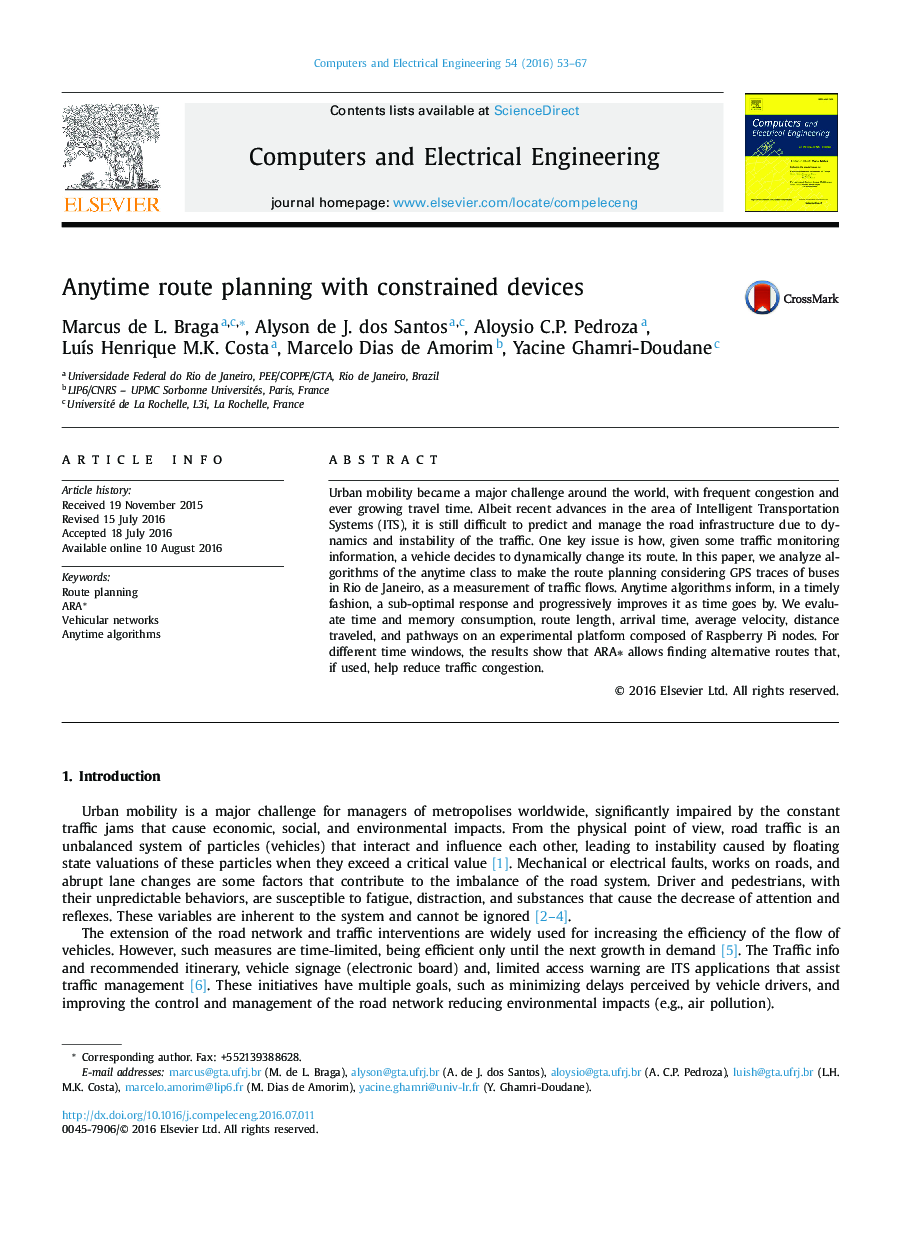| Article ID | Journal | Published Year | Pages | File Type |
|---|---|---|---|---|
| 6883667 | Computers & Electrical Engineering | 2016 | 15 Pages |
Abstract
Urban mobility became a major challenge around the world, with frequent congestion and ever growing travel time. Albeit recent advances in the area of Intelligent Transportation Systems (ITS), it is still difficult to predict and manage the road infrastructure due to dynamics and instability of the traffic. One key issue is how, given some traffic monitoring information, a vehicle decides to dynamically change its route. In this paper, we analyze algorithms of the anytime class to make the route planning considering GPS traces of buses in Rio de Janeiro, as a measurement of traffic flows. Anytime algorithms inform, in a timely fashion, a sub-optimal response and progressively improves it as time goes by. We evaluate time and memory consumption, route length, arrival time, average velocity, distance traveled, and pathways on an experimental platform composed of Raspberry Pi nodes. For different time windows, the results show that ARA* allows finding alternative routes that, if used, help reduce traffic congestion.
Related Topics
Physical Sciences and Engineering
Computer Science
Computer Networks and Communications
Authors
Marcus de L. Braga, Alyson de J. dos Santos, Aloysio C.P. Pedroza, LuÃs Henrique M.K. Costa, Marcelo Dias de Amorim, Yacine Ghamri-Doudane,
